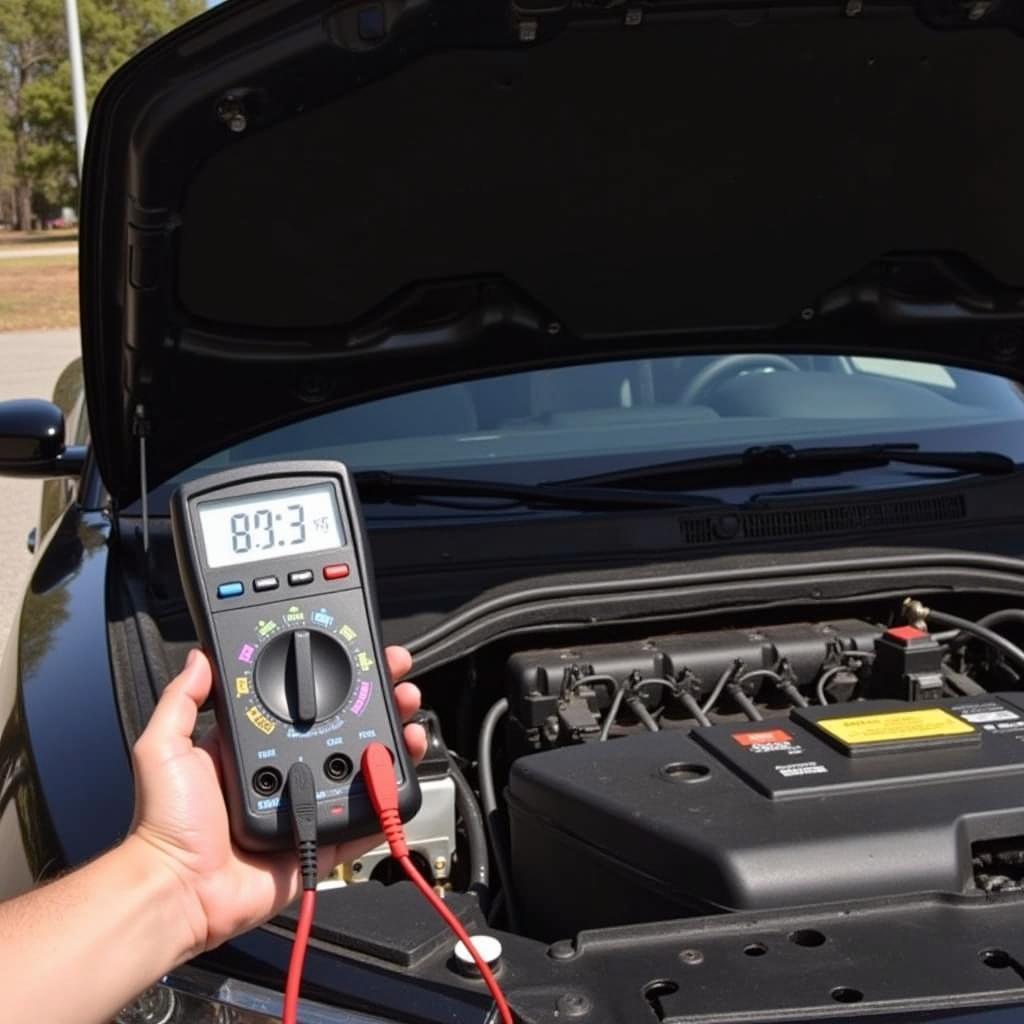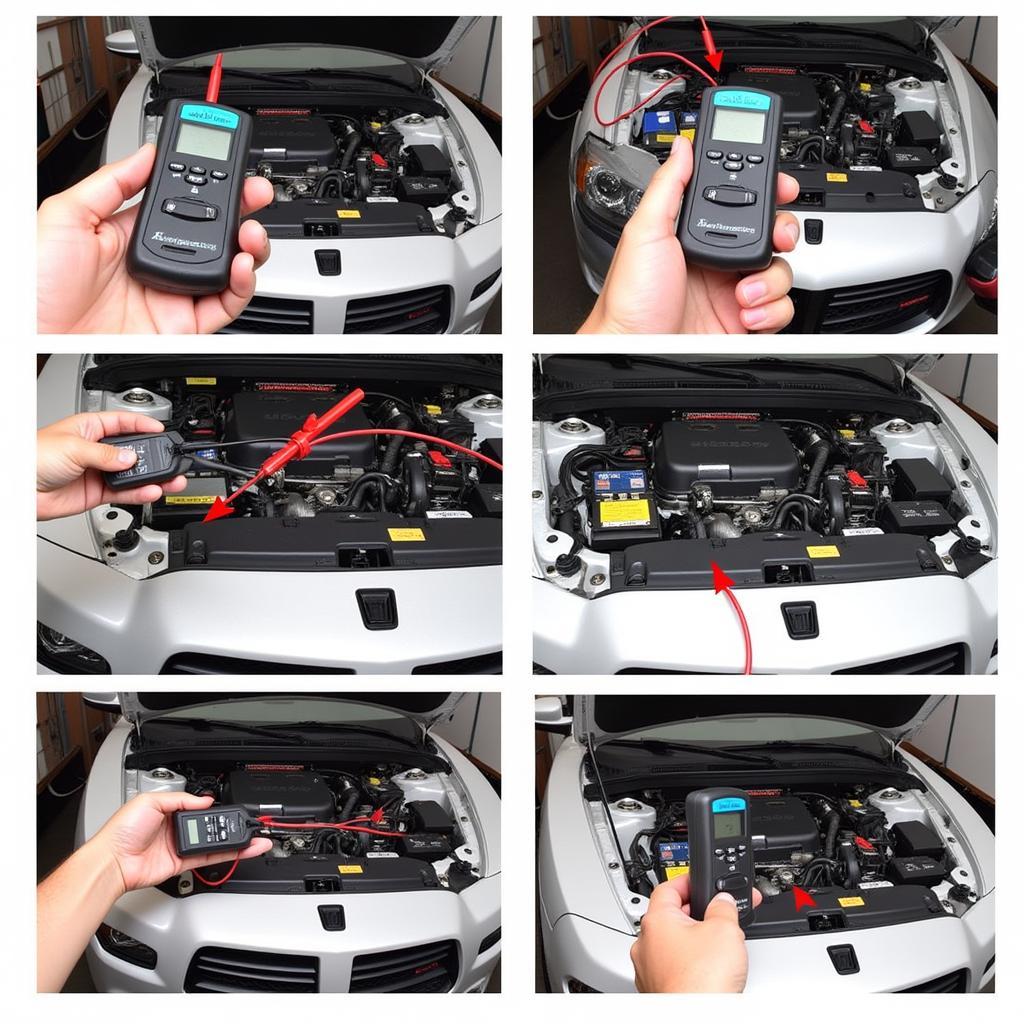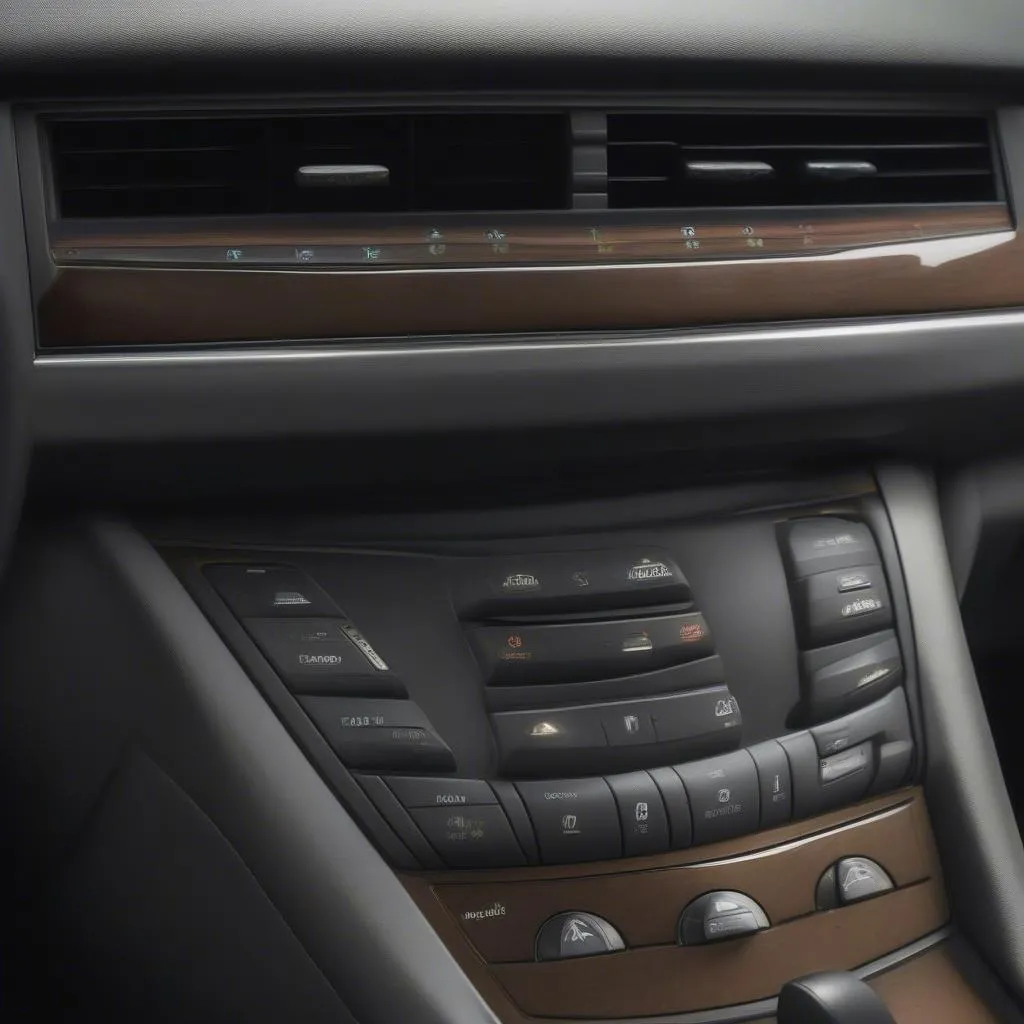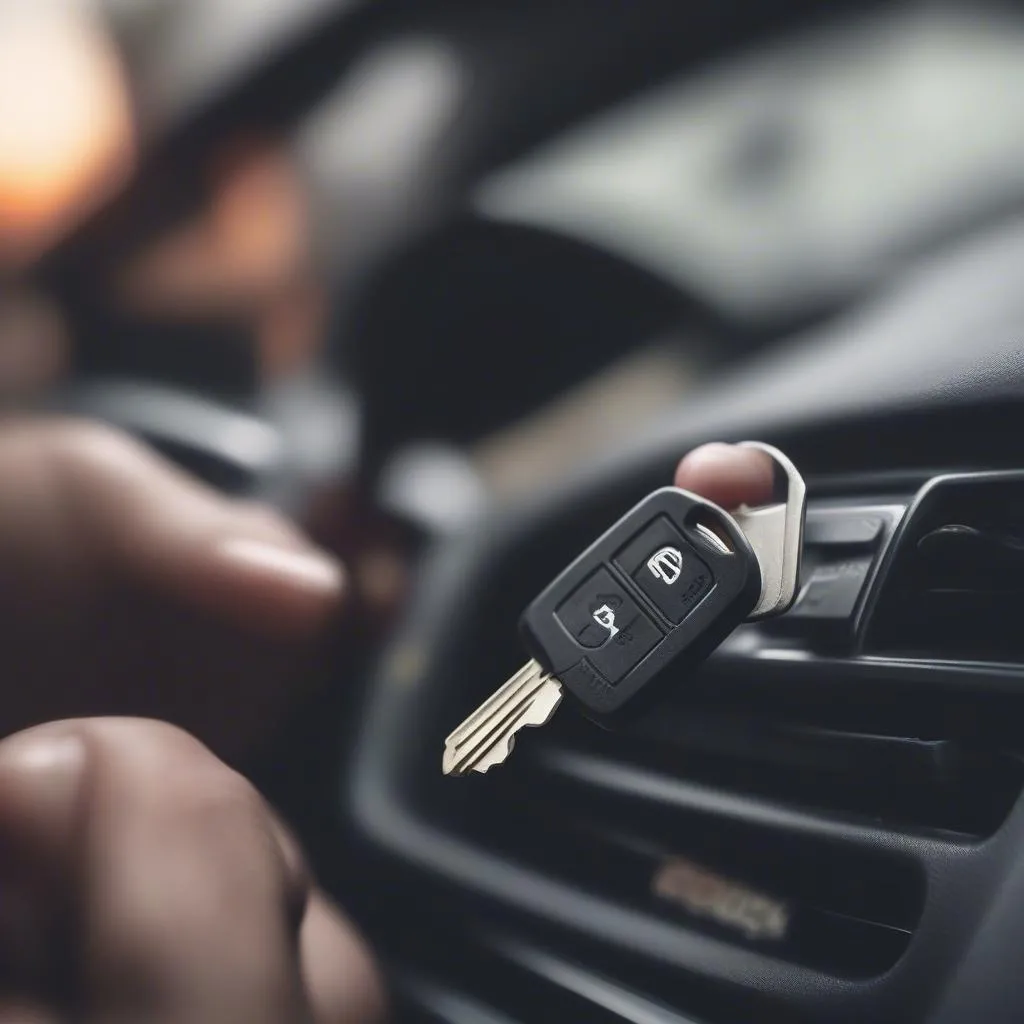A dead battery in your Dodge Charger can be incredibly frustrating. Whether you’re dealing with a slow drain overnight or a completely dead battery after a short drive, understanding the reasons why your Dodge Charger is draining battery power is the first step towards a solution. This article provides a comprehensive guide to help you diagnose and fix the problem. car battery problem in winter
Common Causes of a Dodge Charger Draining Battery
There are several reasons why your Dodge Charger’s battery might be draining. Some are simple fixes, while others require more in-depth diagnostics. Here’s a breakdown of common culprits:
- Parasitic Draw: This is the most common cause of a dodge charger draining battery. A parasitic draw occurs when an electrical component continues to draw power even when the car is off, slowly draining the battery over time. Common culprits include faulty interior lights, glove box lights, door switches, and aftermarket accessories.
- Bad Alternator: The alternator is responsible for recharging the battery while the engine is running. A failing alternator won’t charge the battery effectively, leading to a gradual drain and eventually a dead battery.
- Old Battery: Batteries have a limited lifespan, typically 3-5 years. An old or worn-out battery may not hold a charge effectively, even if the charging system is working correctly.
- Extreme Temperatures: Extreme heat or cold can significantly impact battery performance. Cold weather, in particular, can reduce a battery’s capacity, making it more susceptible to draining.
- Corroded Terminals: Corroded battery terminals can impede the flow of electricity, preventing the battery from charging properly and causing it to drain faster.
- Leaving Lights On: Accidentally leaving headlights, interior lights, or other accessories on can quickly drain a car battery.
 Dodge Charger Battery Drain Due to Parasitic Draw
Dodge Charger Battery Drain Due to Parasitic Draw
How to Diagnose a Dodge Charger Draining Battery
Diagnosing a dodge charger draining battery requires a systematic approach. Here are some steps you can take:
- Check the Battery Terminals: Inspect the battery terminals for corrosion. Clean them with a wire brush and baking soda solution if necessary.
- Test the Battery: Use a multimeter to test the battery voltage. A fully charged battery should read around 12.6 volts. A lower reading indicates a weak or dying battery.
- Test the Alternator: With the engine running, the alternator should output around 14 volts. A lower reading suggests a problem with the alternator.
- Check for Parasitic Draw: This requires using a multimeter to measure the current draw with the car off. A draw of more than 50 milliamps is likely a sign of a parasitic drain. You can then isolate the circuit causing the drain by pulling fuses one at a time while monitoring the multimeter reading. my battery in my car keeps dying
Solutions for a Draining Battery
Once you’ve identified the cause of the drain, you can take appropriate action:
- Replace the Battery: If the battery is old or weak, replacing it is the most straightforward solution. battery charger for dead car battery
- Repair or Replace the Alternator: A failing alternator needs to be repaired or replaced to ensure the battery is charged properly.
- Fix the Parasitic Draw: This involves identifying and repairing the component or circuit causing the drain. This might involve replacing a faulty switch, relay, or wiring harness. car charger drain battery
- Clean Corroded Terminals: Cleaning corroded terminals can restore proper electrical contact and prevent further drain.
“Regular battery maintenance is crucial. Checking and cleaning your battery terminals every few months can help prevent corrosion and ensure optimal battery performance,” says John Smith, ASE Certified Master Technician.
Why is My Dodge Charger Battery Dying Overnight?
If your Dodge Charger battery is dying overnight, it’s most likely due to a parasitic draw. This means something is drawing power even when the car is off.
 Testing for Parasitic Draw in a Dodge Charger
Testing for Parasitic Draw in a Dodge Charger
Will a Trickle Charger Help?
A trickle charger will a car battery charger charge a dead battery can help maintain a battery’s charge, especially during periods of inactivity or in cold weather. However, it won’t fix a drain caused by a faulty component.
“A trickle charger is a great preventative measure, but it’s not a solution for a pre-existing drain problem. Addressing the root cause is essential,” advises Emily Davis, Electrical Systems Engineer.
Conclusion
Dealing with a dodge charger draining battery can be a hassle, but by understanding the potential causes and following the diagnostic steps outlined in this article, you can effectively pinpoint and resolve the issue. Regular maintenance and prompt attention to any signs of battery trouble can save you time, money, and frustration in the long run.
FAQ
- How long should a Dodge Charger battery last? Typically 3-5 years.
- Can a bad alternator drain a Dodge Charger battery? Yes, a faulty alternator won’t recharge the battery.
- What is a parasitic draw? It’s when an electrical component draws power even when the car is off.
- How do I test for a parasitic draw? Use a multimeter to measure current draw with the car off.
- How do I clean corroded battery terminals? Use a wire brush and a baking soda solution.
- What are signs of a dying car battery? Slow cranking, dimming lights, and clicking sounds when starting.
- How can I prevent my Dodge Charger battery from draining? Regular maintenance and addressing any electrical issues promptly.


